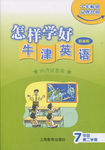��Ŀ����
���ĸĴ�
�ٶ�Ӣ�������ʦҪ��ͬ��֮�佻�������ģ���������ͬ��д���������ġ����й���10�����Դ���ÿ���������������ÿ��������漰һ�����ʵ����ӡ�ɾ�����ġ�
���ӣ���ȱ�ʴ���һ��©�ַ��ţ�/\��������������д���üӵĴʣ�
ɾ�����Ѷ���Ĵ���б��(��)������
�ģ��ڴ��Ĵ��»�һ���ߣ����ڸô�����д���ĺ�Ĵʡ�
ע�⣺1��ÿ���������ľ�����һ�ʣ�
2��ֻ������10�������ߣ��ӵ�11���𣩲��Ʒ֡�
Dear Chris��
I'm Li Ming, monitor of Class One, Senior One. I'm glad to hear that you will come to our school as exchange student next term. I feel it an honor of us to study with you. Now I have something to tell you about. Firstly, with the climate changing, you should prepared enough clothes. Then there are different kind of foods and snacks which will give you a chance to experiencing rich Chinese food culture. In addition, every student is friendly to foreign friends, that will make it easy for you to get along good with them.
Last but not least, we can do what we can to help you, and you must get prepared to meet all kinds of difficulties. During your stay here, I hope you can tell us more about American culture. Only by understanding and learn from each other can we spend these days together happily.
Yours,
Li Ming
 ����ѧ��ţ��Ӣ��ϵ�д�
����ѧ��ţ��Ӣ��ϵ�д�

 ecks.
ecks. life, you should take acting courses and win Oscars.
life, you should take acting courses and win Oscars.